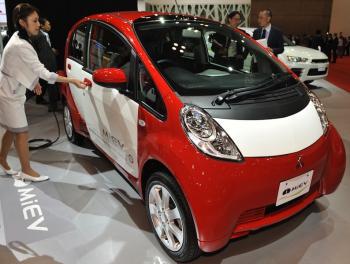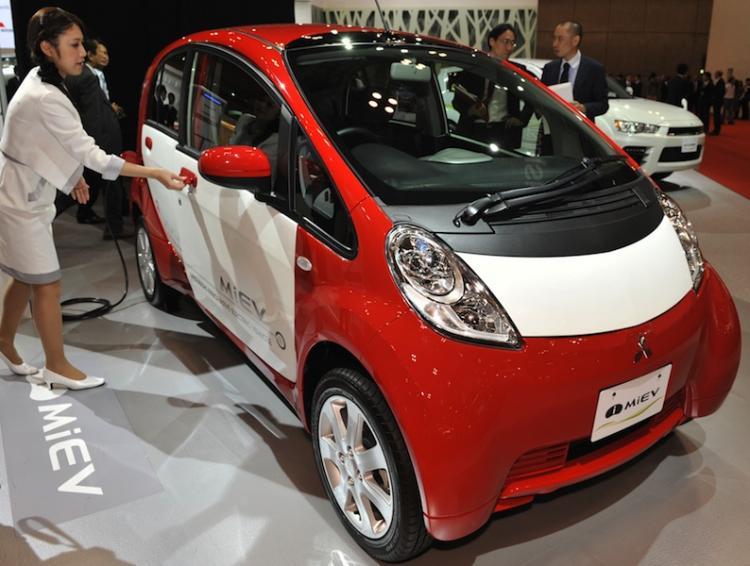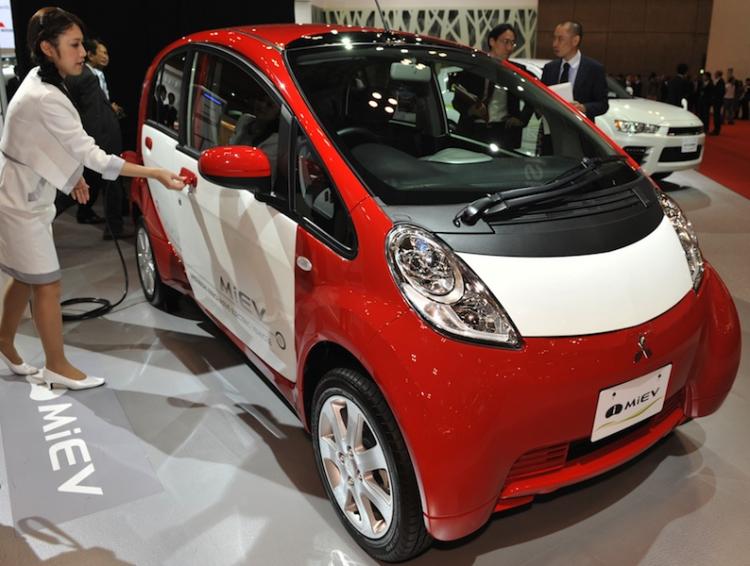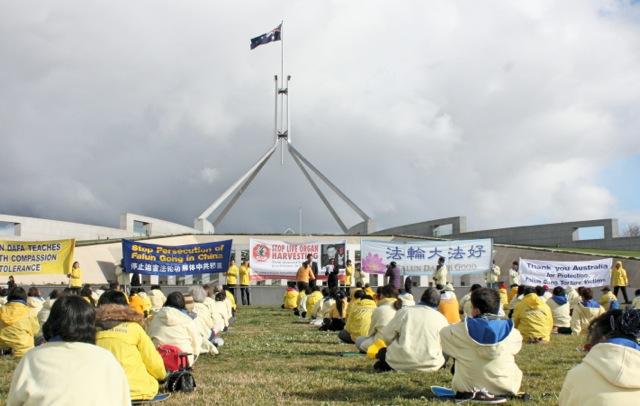Mitsubishi Motors Corporation (MMC) introduced its flashy i-MiEV electric car to the Hong Kong market on May 24, marking the first foreign sale outside Japan.
Hong Kong car buyers can purchase the small, battery-operated vehicles for HKD395,000 (approximately $50,730 US). Mitsubishi aims to sell at least 50 units by the end of this year.
The i-MiEV boasts an impressive green footprint with zero-emissions and quick recharging time. In addition to high environmental performance, the i-MiEV has been lauded for its motor power, stability, quietness, and its comfortable ride.
The performance, equipment levels, and safety features of the i-MiEV compare extremely favorably with all its gasoline/diesel equivalents. Standard specifications include ABS brakes, airbags, ISO FIX, air conditioning, electric windows and mirrors, CD/radio/USB player, and Bluetooth telephone connectivity.
Of course, it’s the electric motor that is the key feature of the i-MiEV. An inverter and recharger replace the conventional engine, and compact lithium ion batteries replace the fuel tank, producing zero tailpipe emissions. The result is a car with a top speed of 80 mph that can be fully charged in seven hours at home. With a quick charge drivers can get an 80 percent “fill” in just 30 minutes.
In Japan, MMC initially sold the i-MiEV mainly to corporations and municipalities in 2009, with sales of about 1400 cars. In April of 2010, MMC has expanded its sales to include the general public.
MMC has been conducting fleet testing in countries and other areas all over the globe and plans to launch left-hand drive i-MiEVs in Europe by the end of this year.
Ireland has already signed up to actively promote electric vehicle technology, as part of the country’s drive toward reducing greenhouse emissions. The Irish Government has set a target to have 10 percent of vehicles on Irish roads be electric by 2020.
The electric car market has met some obstacles, with criticism ranging from poor performance and high costs to a lack of recharging stations. However, recent breakthroughs in the development of long-lasting lithium-ion batteries have lowered the cost of electric vehicles, while also increasing their range and speed.
Hong Kong’s MyCar
Hong Kong recently developed its own electric car, launching the much publicized MyCar last October. The small, battery-powered two-seater is not only environmentally friendly, but also inexpensive.
It takes is about $1.28 to fully charge the MyCar, giving the vehicle enough power for about 62 miles. The MyCar itself can be had for $11,558, according to Eric Cheng, a professor at Polytechnic University’s Power Electronics Research Center, from a report in The Standard.
Ideal Market for Electric
Electric vehicles are expected to gain popularity in Hong Kong, where emissions have reached alarming levels. The city’s increasing pollution has prompted regular government health warnings and growing discontent among Hong Kong’s seven million people.
The area’s roadside pollution was either “very high” or “severe” 13.6 percent of the time from January to March and 23.8 percent of the time in the October to December period last year, compared with a previous high of 13.4 percent in the fourth quarter of 2008, according to Environmental Protection Department data.
Compare this to the oldest quarterly air pollution index figures which showed the city breaching “very high” levels—1.9 percent of the time in the third quarter of 1999. Now recording even greater pollution in the last six months, Hong Kong would indeed benefit from a growing number of new zero-emission, electric cars.





